Search titles
Displaying results 41 to 50 of 112.
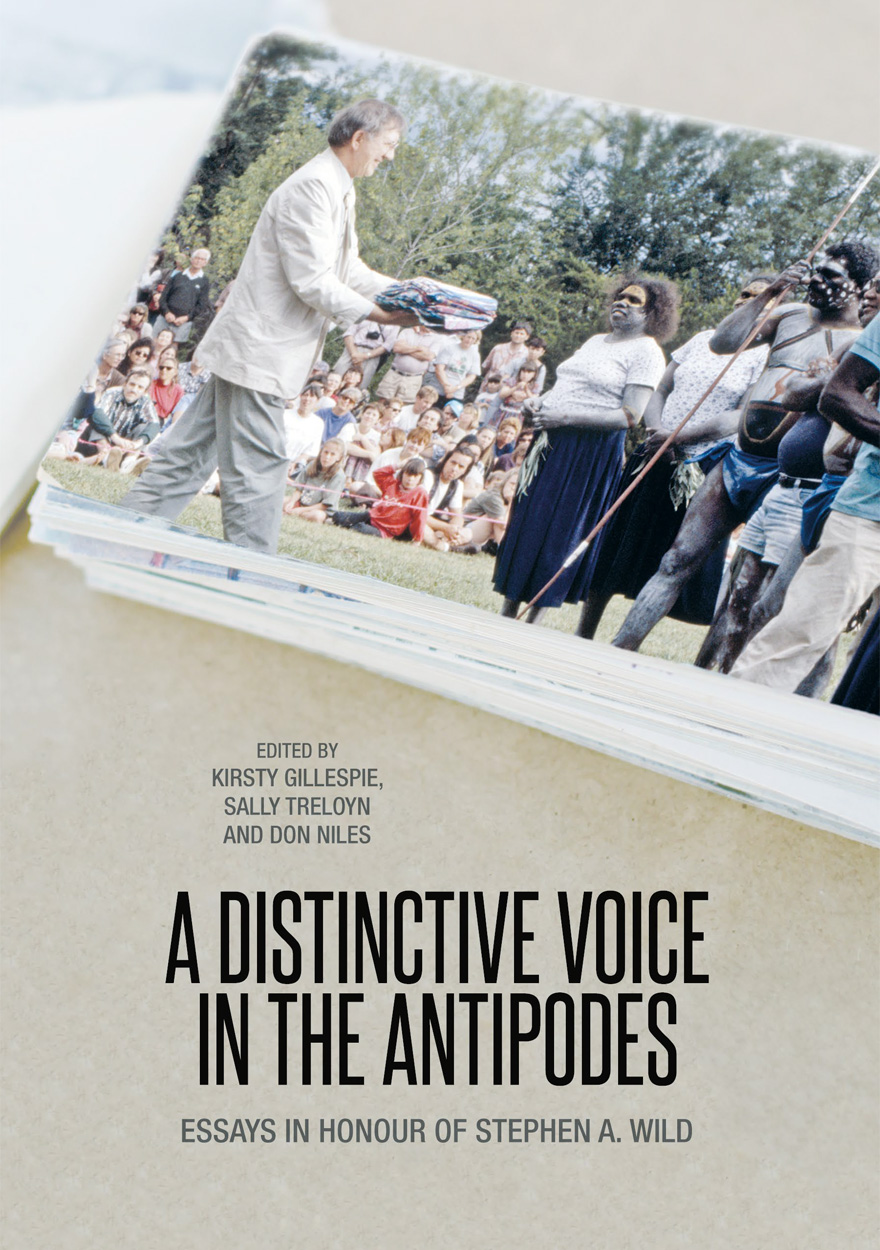
A Distinctive Voice in the Antipodes »
Essays in Honour of Stephen A. Wild
Publication date: July 2017
This volume of essays honours the life and work of Stephen A. Wild, one of Australia’s leading ethnomusicologists. Born in Western Australia, Wild studied at Indiana University in the USA before returning to Australia to pursue a lifelong career with Indigenous Australian music.
As researcher, teacher, and administrator, Wild’s work has impacted generations of scholars around the world, leading him to be described as ‘a great facilitator and a scholar who serves humanity through music’ by Andrée Grau, Professor of the Anthropology of Dance at University of Roehampton, London.
Focusing on the music of Aboriginal Australia and the Pacific Islands, and the concerns of archiving and academia, the essays within are authored by peers, colleagues, and former students of Wild. Most of the authors are members of the Study Group on Music and Dance of Oceania of the International Council for Traditional Music, an organisation that has also played an important role in Wild’s life and development as a scholar of international standing.
Ranging in scope from the musicological to the anthropological—from technical musical analyses to observations of the sociocultural context of music—these essays reflect not only on the varied and cross-disciplinary nature of Wild’s work, but on the many facets of ethnomusicology today.
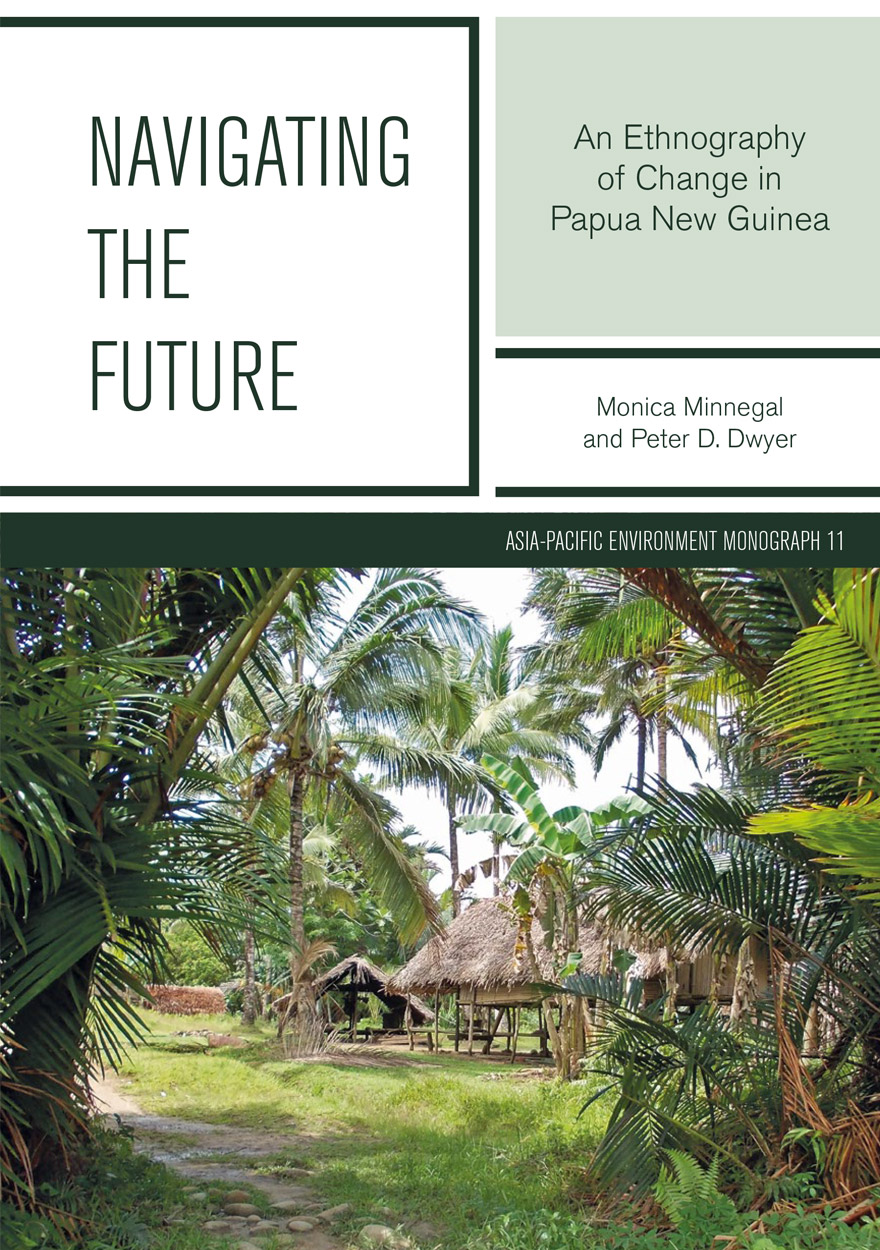
Navigating the Future »
An Ethnography of Change in Papua New Guinea
Authored by: Monica Minnegal, Peter D. Dwyer
Publication date: June 2017
Navigating the Future draws on long-term ethnographic fieldwork with Kubo people and their neighbours, in a remote area of Papua New Guinea, to explore how worlds are reconfigured as people become increasingly conscious of, and seek to draw into their own lives, wealth and power that had previously lain beyond their horizons. In the context of a major resource extraction project—the Papua New Guinea Liquefied Natural Gas (PNG LNG) Project–taking shape in the mountains to the north, the people in this area are actively reimagining their social world. This book describes changes in practice that result, tracing shifts in the ways people relate to the land, to each other and to outsiders, and the histories of engagement that frame those changes. Inequalities are emerging between individuals in access to paid work, between groups in potential for claiming future royalties, and between generations in access to information. As people at the village of Suabi strive to make themselves visible to the state and to petroleum companies, as legal entities entitled to receive benefits from the PNG LNG Project, they are drawing new boundaries around sets of people and around land and declaring hierarchical relationships between groups that did not exist before. They are struggling to make sense of a bureaucracy that is foreign to them, in a place where the state currently has minimal presence. A primary concern of Navigating the Future is with the processes through which these changes have emerged, as people seek to imagine—and work to bring about—a radically different future for themselves while simultaneously reimagining their own past in ways that validate those endeavours.

A Mission Divided »
Race, Culture and Colonialism in Fiji’s Methodist Mission
Authored by: Dr Kirstie Close-Barry
Publication date: December 2015
This book provides insight into the long process of decolonisation within the Methodist Overseas Missions of Australasia, a colonial institution that operated in the British colony of Fiji. The mission was a site of work for Europeans, Fijians and Indo-Fijians, but each community operated separately, as the mission was divided along ethnic lines in 1901. This book outlines the colonial concepts of race and culture, as well as antagonism over land and labour, that were used to justify this separation. Recounting the stories told by the mission’s leadership, including missionaries and ministers, to its grassroots membership, this book draws on archival and ethnographic research to reveal the emergence of ethno-nationalisms in Fiji, the legacies of which are still being managed in the post-colonial state today.
Analysing in part the story of her own ancestors, Kirstie Barry develops a fascinating account of the relationship between Christian proselytization and Pacific nationalism, showing how missionaries reinforced racial divisions between Fijian and Indo-Fijian even as they deplored them. Negotiating the intersections between evangelisation, anthropology and colonial governance, this is a book with resonance well beyond its Fijian setting.
– Professor Alan Lester, University of Sussex
This thoroughly researched and finely crafted book unwraps and finely illustrates the interwoven layers of evolving complexity in different interpretations of ideals and debates on race, culture, colonialism and independence that informed the way the Methodist Mission was run in Fiji. It describes the human personalities and practicalities, interconnected at local, regional and global levels, which influenced the shaping of the Mission and the independent Methodist Church in Fiji. It documents the influence of evolving anthropological theories and ecumenical theological understandings of culture on mission practice. The book’s rich sources enhance our understanding of the complex history of ethnic relations in Fiji, helping to explain why ethnic divisive thinking remains a challenge.
– Jacqueline Ryle, University of the South Pacific
A beautifully researched study of the transnational impact of South Asian bodies on nationalisms and church devolution in Fiji, and an important resource for empire studies as a whole.’
– Professor Jane Samson, University of Alberta, Canada
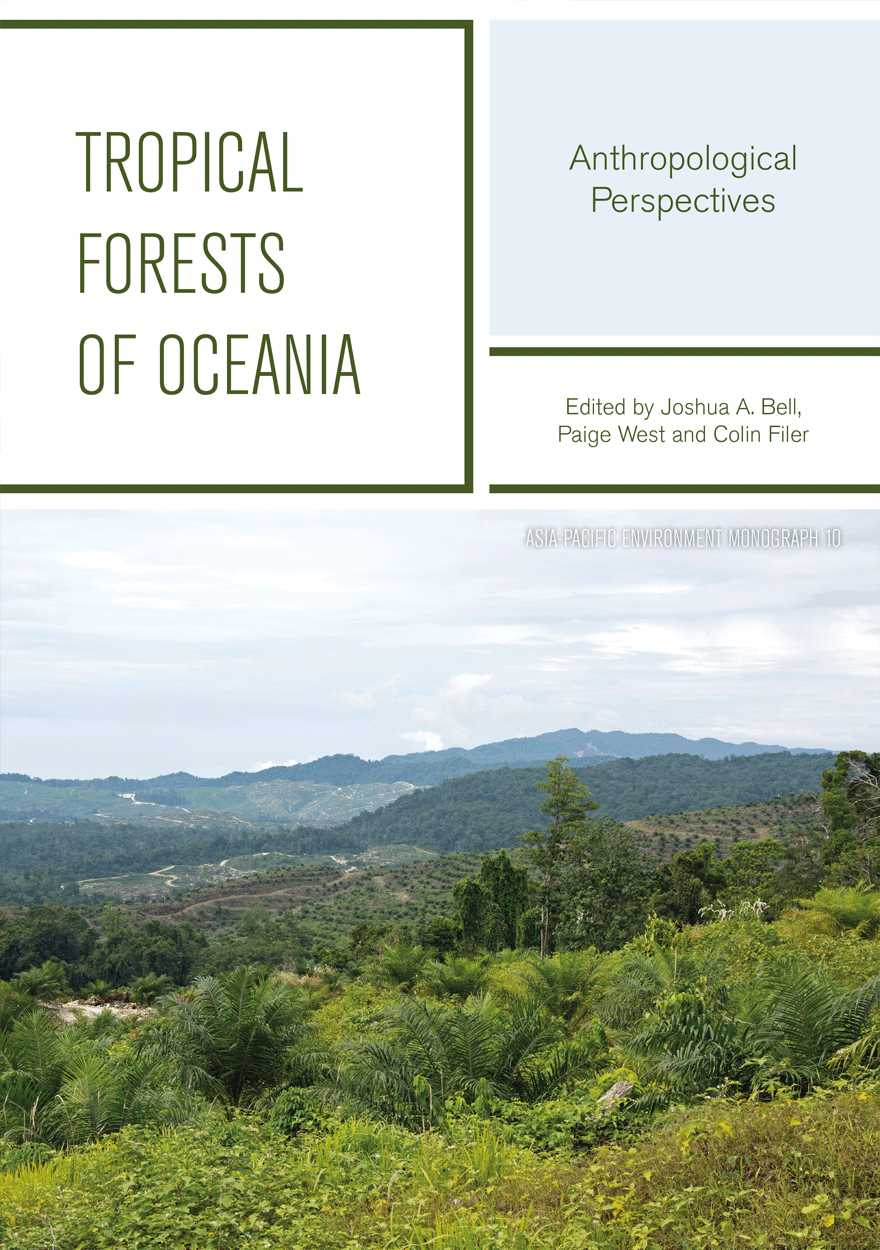
Tropical Forests Of Oceania »
Anthropological Perspectives
Edited by: Joshua A. Bell, Paige West, Colin Filer
Publication date: August 2015
The tropical forests of Oceania are an enduring source of concern for indigenous communities, for the migrants who move to them, for the states that encompass them within their borders, for the multilateral institutions and aid agencies, and for the non-governmental organisations that focus on their conservation. Grounded in the perspective of political ecology, contributors to this volume approach forests as socially alive spaces produced by a confluence of local histories and global circulations. In doing so, they collectively explore the multiple ways in which these forests come into view and therefore into being. Exploring the local dynamics within and around these forests provides an insight into regional issues that have global resonance. Intertwined as they are with cosmological beliefs and livelihoods, as sites of biodiversity and Western desire, these forests have been and are still being transformed by the interaction of foreign and local entities. Focusing on case studies from Papua New Guinea, the Solomon Islands and the Gambier Islands, this volume brings new perspectives on how Pacific Islanders continue to creatively engage with the various processes at play in and around their forests.

Macassan History and Heritage »
Journeys, Encounters and Influences
Edited by: Marshall Clark, Sally K. May
Publication date: June 2013
This book presents inter-disciplinary perspectives on the maritime journeys of the Macassan trepangers who sailed in fleets of wooden sailing vessels known as praus from the port city of Makassar in southern Sulawesi to the northern Australian coastline. These voyages date back to at least the 1700s and there is new evidence to suggest that the Macassan praus were visiting northern Australia even earlier. This book examines the Macassan journeys to and from Australia, their encounters with Indigenous communities in the north, as well as the ongoing social and cultural impact of these connections, both in Indonesia and Australia.
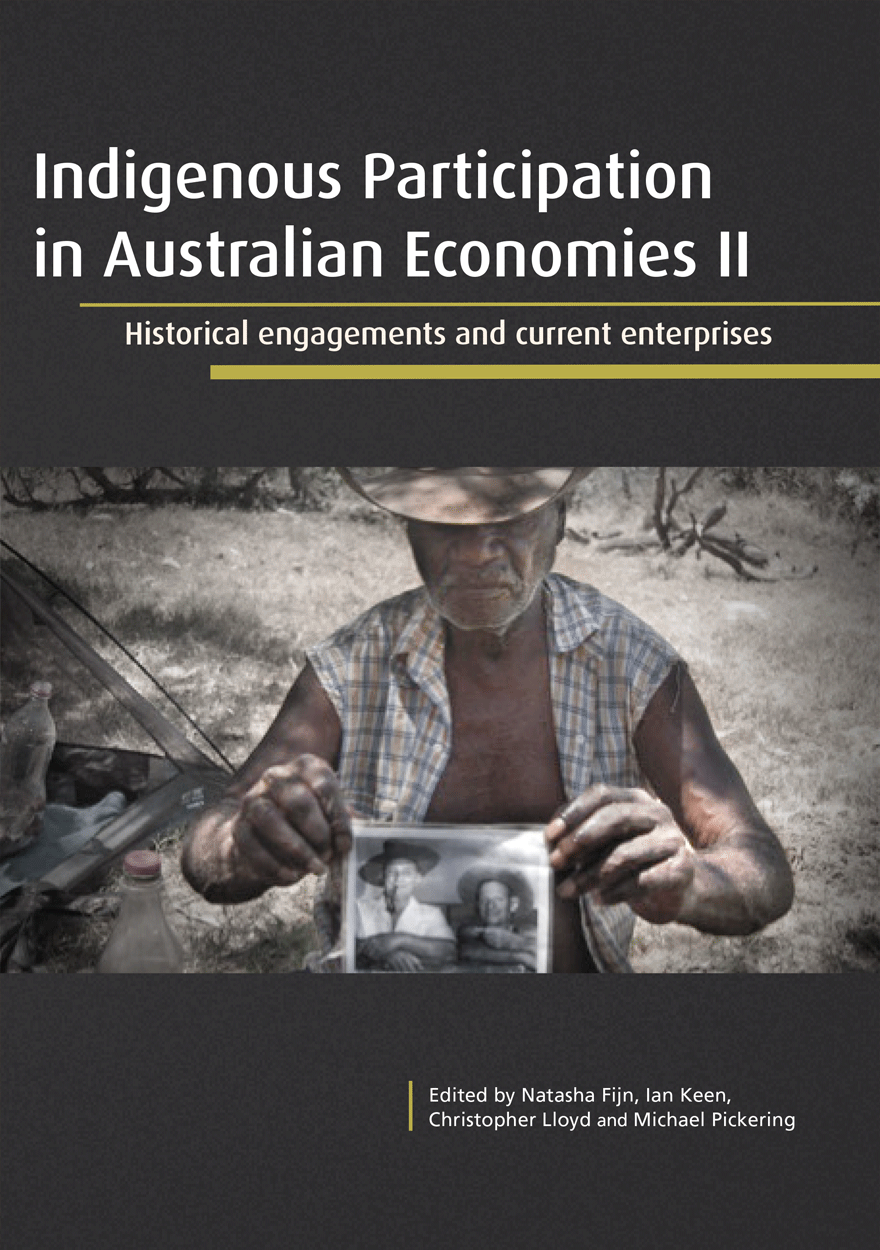
Indigenous Participation in Australian Economies II »
Historical engagements and current enterprises
Publication date: July 2012
This is the second volume to emerge from a project on Indigenous participation in the Australian economy, funded by an Australian Research Council (ARC) Linkage Grant, and involving the cooperation of the School of Archaeology and Anthropology at The Australian National University and the National Museum of Australia. The Chief Investigators were Ian Keen, Chris Lloyd, Anthony Redmond, the Partner Investigator was Mike Pickering, Fiona Skyring was an associate researcher on the project, and Natasha Fijn was research assistant. The present volume arises out of a conference in Canberra on Indigenous Participation in Australian Economies at the National Museum of Australia on 9–10 November 2009, which attracted more than thirty presenters. The diverse themes included histories of economic relations, the role of camels and dingoes in Indigenous–settler relations, material culture and the economy, the economies of communities from missions and stations to fringe camps and towns, the transitions from payment-in-kind to wage economies and Community Development Employment Projects, the issue of unpaid and stolen wages, local enterprises, and conflicts over development. Sixteen of those papers have been developed as chapters in this volume, together with a foreword by Professor Jon Altman. This book comprises a companion volume to Indigenous Participation in Australian Economies: Historical and Anthropological Perspectives, published by ANU Press in 2010.
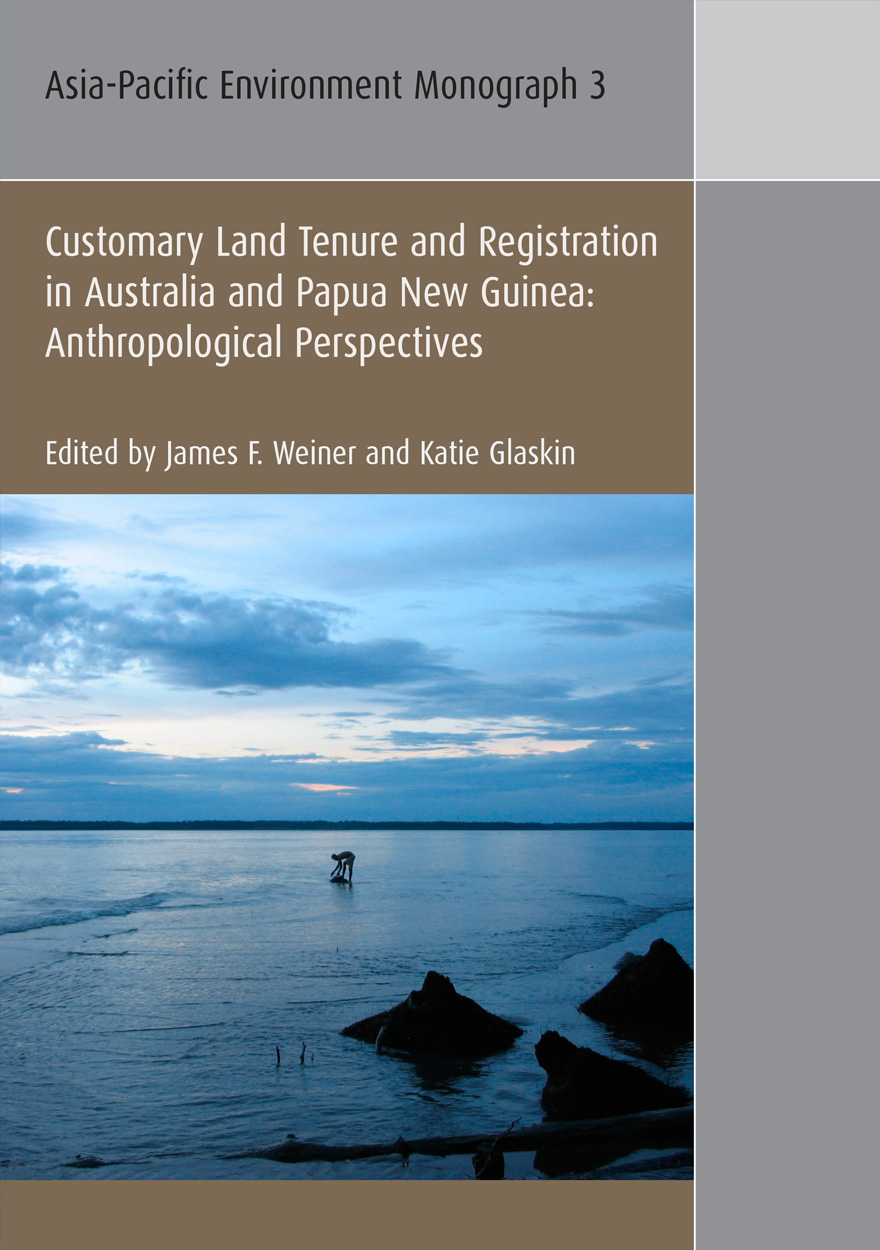
Customary Land Tenure & Registration in Australia and Papua New Guinea »
Anthropological Perspectives
Edited by: James Weiner, Katie Glaskin
Publication date: June 2007
The main theme of this volume is a discussion of the ways in which legal mechanisms, such as the Land Groups Incorporation Act (1974) in PNG, and the Native Title Act (1993) in Australia, do not, as they purport, serve merely to identify and register already-existing customary indigenous landowning groups in these countries. Because the legislation is an integral part of the way in which indigenous people are defined and managed in relation to the State, it serves to elicit particular responses in landowner organisation and self-identification on the part of indigenous people. These pieces of legislation actively contour the progressive evolution of landowner social, territorial and political organisation at all levels in these nation states. The contributors to this volume provide in-depth anthropological case studies of social structural and cultural transformations engendered by the confrontation between states, developers and indigenous communities over rights to customarily owned land.
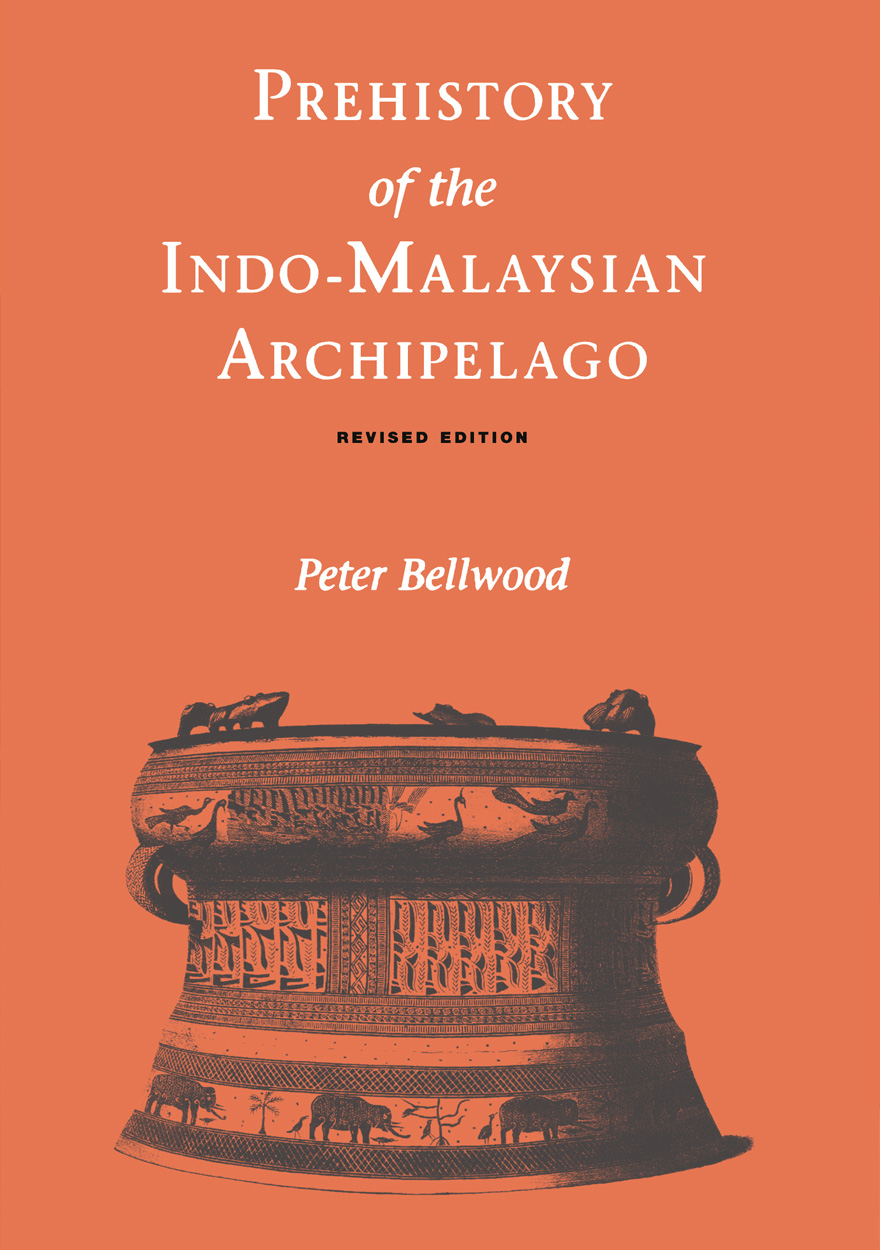
Prehistory of the Indo-Malaysian Archipelago »
Revised Edition
Authored by: Peter Bellwood
Publication date: March 2007
Since its publication in 1985, Peter Bellwood’s Prehistory of the Indo-Malaysian Archipelago has been hailed as the sole authoritative work on the subject by the leading expert in the field. Now that work has been fully revised and includes a complete up-to-date summary of the archaeology of the region (and relevant neighboring areas of China and Oceania), as well as a comprehensive discussion of new and important issues (such as the “Eve-Garden of Eden” hypothesis and its relevance to the Indo-Malaysian region) and recent advances in macrofamily linguistic classification.
Moving north to south from northern Peninsular Malaysia to Timor and west to east from Sumatra to the Moluccas, Bellwood describes human prehistory from initial hominid settlement more than one million years ago to the eve of historical Hindu-Buddhist and Islamic cultures of the region. The archaeological record provides the central focus, but chapters also incorporate essential information from the paleoenvironmental sciences, biological anthropology, linguistics, and social anthropology. Bellwood approaches questions about past cultural and biological developments in the region from a multidisciplinary perspective. Historical issues given extended treatment include the significance of the Homo erectus populations of Java, the dispersal of the present Austronesian-speaking peoples of the region within the past 4,000 years, and the spread of metallurgy since 500 B.C. Bellwood also discusses relationships between the prehistoric populations of the archipelago and those of neighboring regions such as Australia, New Guinea, and mainland Asia.

Yagara Dictionary and Salvage Grammar »
Authored by: Karen Sullivan, Glenda Harward-Nalder
Publication date: March 2024
Most English speakers in Australia know a few words of Yagara, the Pama-Nyungan language traditionally spoken in the area that now includes Brisbane and Ipswich. For example, Australian English yakka ‘work’ comes from the Yagara verb yaga ‘to work’. However, no fluent native speakers of Yagara remain. The current volume compares the written records of Yagara to facilitate revitalisation of the spoken language.
Part 1: Grammar introduces the Yagara sources, which are then compared to extract a picture of Yagara’s structure – its sounds, its words, and its grammar. Attention is also given to the system of kinship terms, moieties, and totems.
Part 2: Dictionary contains the most complete Yagara-English dictionary to date, with over 2,200 entries, the original source spellings for each word, standardised spellings, and anthropological notes. Entries include traditional place names, fun insults, and everyday expressions such as the greeting wi balga ‘Hey, come’. The dictionary is followed by an English word finder list.
Part 3: Texts consist of full versions of all known texts in Yagara, including sentences, songs, and three Bible stories. Standardised versions are accompanied by English translations and the original unedited renditions.
Format: Hardback
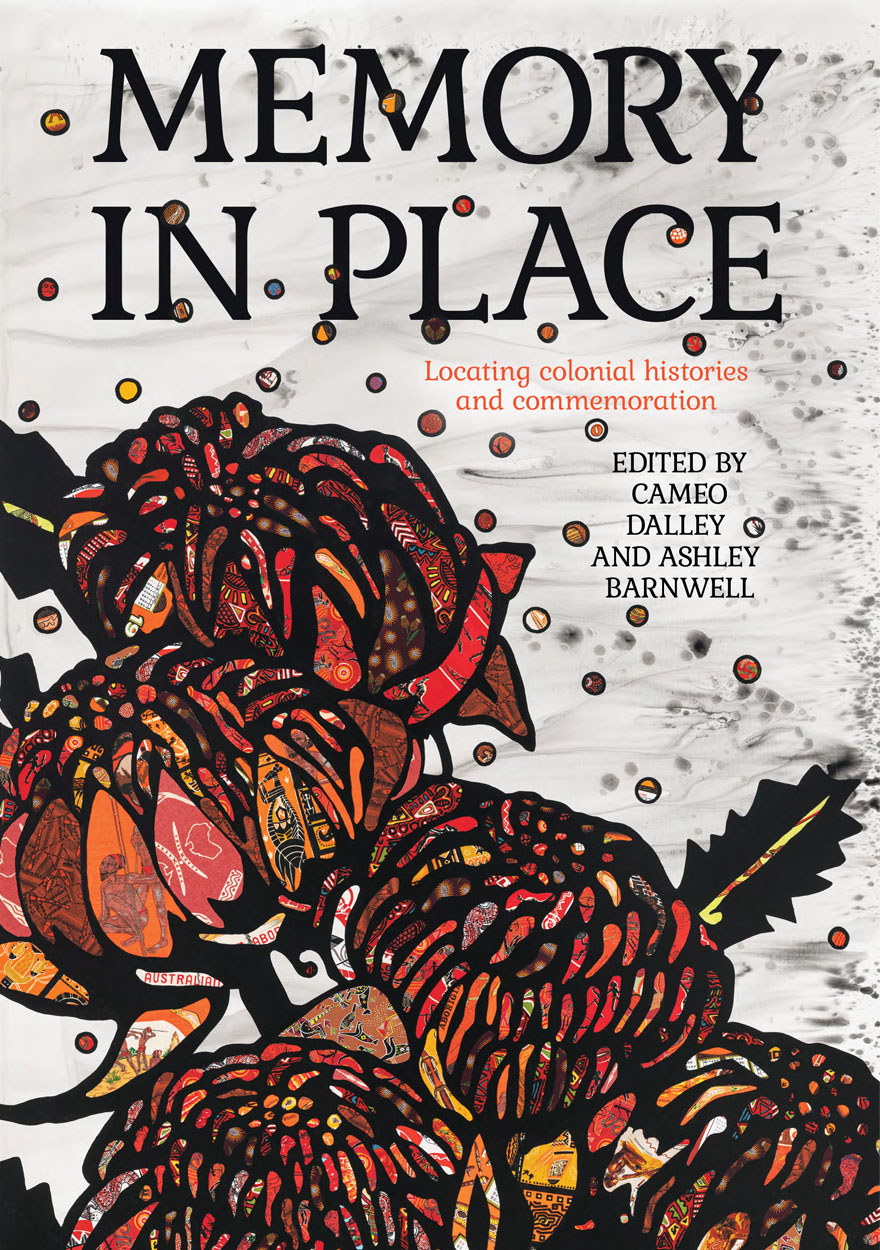
Memory in Place »
Locating colonial histories and commemoration
Edited by: Cameo Dalley, Ashley Barnwell
Publication date: November 2023
Memory in Place brings together Indigenous and non-Indigenous scholars and practitioners grappling with the continued potency of memories and experiences of colonialism. While many of these conversations have taken place on a national stage, this collection returns to the rich intimacy of the local. From Queensland’s sweeping Gulf Country, along the shelly beaches of south Sydney, Melbourne’s city gardens and the rugged hills of South Australia, through Central Australia’s dusty heart and up to the majestic Kimberley, the collection charts how interactions between Indigenous people, settlers and their descendants are both remembered and forgotten in social, political, and cultural spaces. It offers uniquely diverse perspectives from a range of disciplines including history, anthropology, memory studies, archaeology, and linguistics from both established and emerging scholars; from Indigenous and non-Indigenous contributors; and from academics as well as museum and cultural heritage practitioners. The collection locates some of the nation’s most pressing political issues with attention to the local, and the ethics of commemoration and relationships needed at this scale. It will be of interest to those who see the past as intimately connected to the future.



